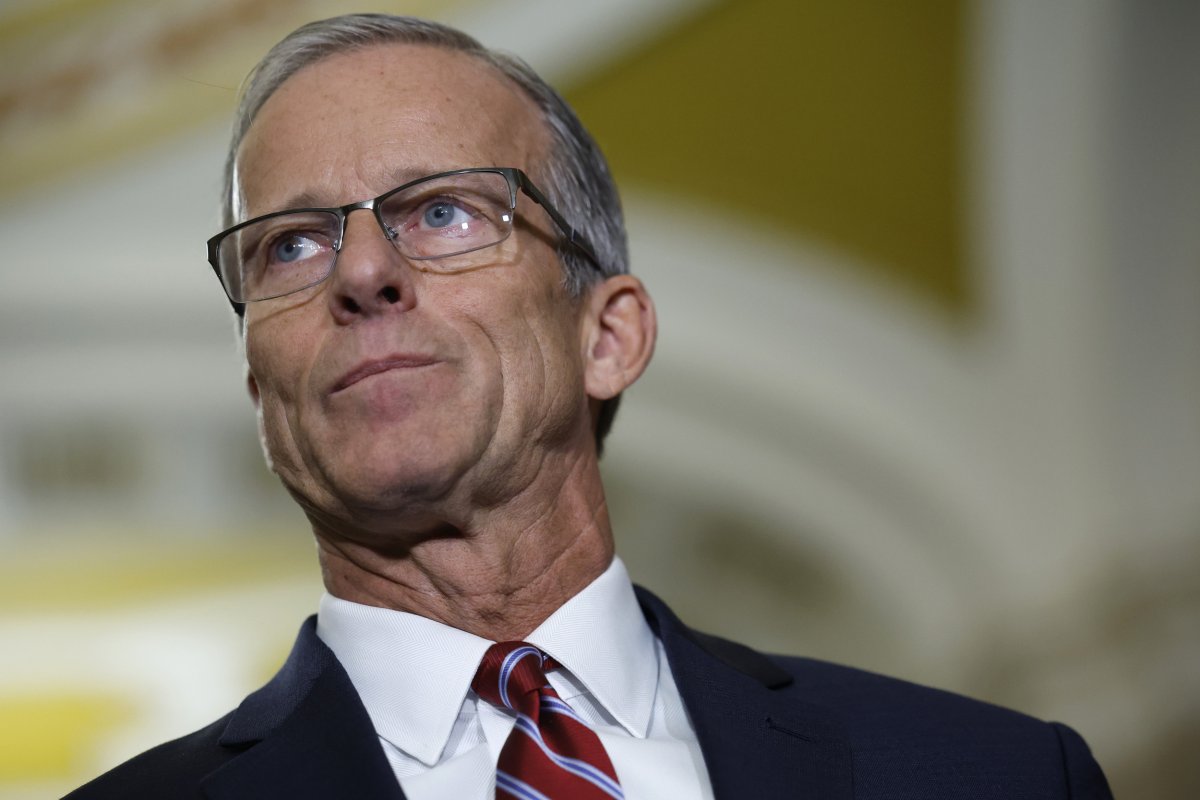Senate Republicans have initiated a significant procedural slowdown aimed at stalling Majority Leader Chuck Schumer’s efforts to fast-track a series of judicial nominations. The maneuver, which was engineered by Senate GOP Whip John Thune (R-S.D.), seeks to delay votes on a host of President Joe Biden’s judicial nominees, potentially derailing Schumer’s goal of rapidly confirming these picks ahead of the 2024 elections.
Thune’s Strategic Slowdown
The move, which began taking shape in late October 2024, is a direct challenge to Schumer’s plan to stack the federal judiciary with Biden’s appointees before the next election cycle. Thune, a key player in Senate GOP leadership, has expressed concerns about the rapid pace at which some of these judicial confirmations are being processed, arguing that they lack sufficient scrutiny. The slowdown primarily targets the confirmation of lower court judges, a strategy that seeks to draw attention to what Republicans perceive as a rushed process designed to push through controversial nominees without the proper level of review.
“The Senate’s role is to carefully vet judicial nominees, not to rubber-stamp them in haste. These are lifetime appointments, and they deserve a full and thorough examination,” Thune said in a statement announcing the strategy. The South Dakota senator has been vocal in his opposition to several of Biden’s judicial picks, particularly those who have faced opposition from conservative groups due to their perceived liberal leanings.
Schumer’s Push for Swift Confirmations
Schumer, a Democrat from New York, has been working diligently to push through judicial nominations before the 2024 election cycle kicks into full gear. With the Senate potentially flipping in the next election, Schumer and other Democrats see a limited window to confirm judges to federal courts, particularly circuit courts, which wield significant influence over national legal decisions.
In recent months, Schumer has tried to accelerate the judicial confirmation process, often attempting to move several nominations forward in a single voting session. He argues that filling vacant judicial seats is essential to maintaining a functioning and fair legal system, particularly as vacancies continue to mount across the country.
“This is about ensuring that we have qualified judges in place who will uphold the law and serve the American people,” Schumer said in a floor speech before launching another round of judicial nominations. “We cannot afford to let these positions remain unfilled.”
GOP’s Strategy: Time and Procedure
The slowdown engineered by Thune is more procedural than outright obstructionist. Rather than staging a complete blockade, Republicans are utilizing a combination of tactics to delay votes on Biden’s judicial picks. These tactics include lengthening debate times, filing motions to extend consideration periods, and using the Senate’s rules to drag out votes on nominees. This strategy is designed to slow the momentum of Schumer’s push without resorting to a full-scale filibuster, which would require 60 votes to overcome and could ultimately backfire politically.
The move could be particularly effective in a divided Senate, where the GOP still holds a slim minority. With every vote on judicial nominees potentially drawing the ire of centrist or moderate senators, Republicans are leveraging procedural tools to force Democrats to spend more time and political capital pushing their judicial agenda forward.
Tensions on the Horizon
The slowdown has intensified tensions between Senate Republicans and Democrats, with both sides accusing the other of politicizing the judicial confirmation process. Senate Judiciary Committee Chairman Dick Durbin (D-Ill.) criticized the GOP move as a partisan ploy that undermines the Senate’s constitutional role in confirming judicial nominees.
“This is a blatant attempt to interfere with the confirmation process simply because Republicans don’t like the direction of President Biden’s judicial selections,” Durbin said in response to Thune’s slowdown strategy. “It’s a cynical move that only delays justice for the American people.”
Meanwhile, Republicans have continued to argue that the rapid confirmation of Biden’s nominees is an effort to stack the courts with individuals who, in their view, are too far left and who will legislate from the bench.
What’s Next for the Judicial Nomination Fight?
As both sides brace for a protracted battle over judicial nominations, the consequences of this delay tactic could reverberate into the 2024 election cycle. The strategy could push the issue of judicial confirmations to the forefront of national political discourse, with Republicans framing it as part of their broader efforts to safeguard the judiciary from what they view as partisan appointments.
For Schumer and Senate Democrats, the clock is ticking. With the prospect of losing control of the Senate in the next election, the push to confirm judges is expected to intensify in the coming months, even as the GOP attempts to slow down the process.
In the meantime, Senate leaders from both parties are bracing for a political showdown that will shape the landscape of the federal judiciary for years to come.
Sources:
- “Senate GOP initiates Thune-engineered slow down as Schumer looks to stack judicial votes.” Fox News, October 2024. Link
- “Senate Republicans slow down judicial confirmations ahead of 2024 elections.” Politico, October 2024.
- “Schumer pushes to fill judicial vacancies amid GOP opposition.” The Washington Post, October 2024.
- “GOP to delay judicial confirmations in new strategy against Biden’s picks.” The Hill, October 2024.

